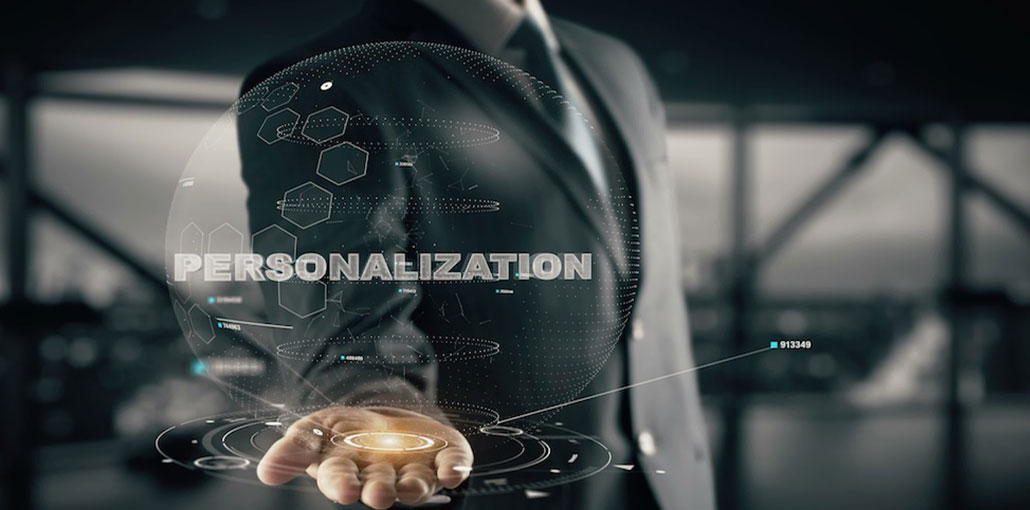Personalization has become a powerful weapon in the increasingly cutthroat corporate environment to get an advantage over rivals and create closer ties with clients. Personalization is the art of tailoring products, services, and communication-based on individual customer preferences and behavior. It’s about recognizing each customer’s unique tastes and interests and presenting them with options that specifically cater to their desires.
Imagine personalization as the secret ingredient in a chef’s recipe. Like how a chef adds a unique combination of spices to a meal to elevate it from ordinary to spectacular, customization enables businesses to provide customers with an experience that is carefully designed and distinctly one-of-a-kind. This “secret ingredient” can change the consumer journey from a routine, universally applicable experience into a memorable, personalized interaction that increases brand loyalty.
Understanding Personalization
Personalization in a business context means customizing interactions based on customer behavior and preferences. But beyond this definition, it encompasses a broader concept that fundamentally changes the dynamics of customer experience. It’s about presenting customers with tailor-made experiences, giving them a sense of being understood and valued.
A prime example of a company that has mastered personalization is Netflix. Netflix has revolutionized the viewing experience by using sophisticated algorithms that analyze viewer preferences based on their past viewing behavior. Rather than offering a generic catalog, Netflix provides a unique menu of movies and shows that it thinks each subscriber will enjoy.
The benefits of personalization are manifold.
Picture personalization as the compass that guides businesses toward their desired destination of customer satisfaction and loyalty. Just like a compass provides direction to reach a destination, personalization helps businesses understand the right path to creating meaningful and rewarding customer experiences. With personalization, companies can navigate the vast sea of customer preferences and behaviors and reach the destination of improved customer satisfaction and increased loyalty.
Also read: 7 Key Steps To Developing A Winning Customer Experience Strategy
The Mechanism of Personalization
Personalization functions like a well-oiled machine, with each component essential to the process as a whole. Data gathering, analysis, and execution are the three critical phases involved.
Data collection is the starting point, akin to the sowing of seeds. Businesses collect information from various touchpoints, like purchase history, browsing patterns, and social media interactions. The items a consumer prefers, their purchasing preferences, or even the time of day they are most likely to purchase might all be included in this data.
The second stage is analysis. This is where the harvested data seeds are nurtured, involving complex algorithms that sort, categorize, and interpret the data to identify patterns and understand individual customer behaviors.
The final stage is execution, where the fruits of the collected and analyzed data are harvested. Here, businesses utilize the insights gleaned to tailor the customer experience. For example, recommending products, personalizing marketing messages, or even adjusting the user interface for individual customers.
A prime example of the successful execution of personalization is Amazon. Amazon’s recommendation engine uses complex algorithms to analyze customer behavior, such as previous purchases, items in the shopping cart, and products viewed or rated. It then utilizes these insights to suggest products the customer might be interested in, creating a tailor-made shopping experience.
Think of personalization as the golden thread that seamlessly weaves a business with its customers’ needs and preferences. Much like in a tapestry, this thread is woven into every interaction, creating a pattern that resonates with each customer, fostering a meaningful and lasting relationship.
Personalization is an ongoing process that evolves with each customer interaction, continually refining and enhancing the customer experience.
Personalization in the Recruitment Industry
Just as personalization is reshaping customer experiences in various industries, it’s also making significant waves in the recruitment sector. The traditional, one-size-fits-all approach to hiring is giving way to a more sophisticated, candidate-focused one. Personalization in recruitment involves understanding each candidate’s unique needs, interests, and aspirations and tailoring the recruitment process accordingly.
A shining example of personalization in the recruitment industry is SignalHire. SignalHire is revolutionizing the hiring process by leveraging personalization to connect with potential job candidates more effectively. By gathering comprehensive data about candidates’ skills, interests, and career aspirations, SignalHire can provide a more personalized and targeted approach to recruitment. This approach improves the applicant experience and increases the likelihood of finding the best candidate for each post.
Personalization in recruitment is much like a bespoke tailor crafting a suit. In the same way that a tailor meticulously measures each client and selects the perfect fabric and style to create a suit that fits the individual perfectly, SignalHire and other recruitment entities use personalization to design recruitment processes that suit each candidate’s unique attributes. This shift from a generic approach to a personalized one helps recruitment entities connect with candidates on a deeper level, ultimately leading to more successful placements.
In the digital transformation era, personalization is becoming the cornerstone of effective recruitment, turning the industry away from impersonal mass recruitment strategies to focus on individual candidate experiences.
Challenges and Solutions in Implementing Personalization
Implementing personalization, while highly rewarding, is challenging. Businesses may grapple with hurdles like data management complexities, privacy concerns, and balancing personalization and generalization.
Data management is often the first hurdle. Ensuring data quality and relevance is crucial, as accurate or updated data can lead to effective personalization efforts.
Privacy concerns pose another significant challenge. As personalization necessitates collecting and analyzing customer data, businesses must respect and protect their customers’ privacy.
Balancing personalization with generalization is also a delicate act. While personalization aims to cater to individual customer needs, businesses should avoid over-specialization that might alienate a part of their audience. They must strike a balance that appeals to individual customers while maintaining a broad enough appeal to cater to their diverse customer base.
Navigating these challenges is much like steering a ship through stormy seas. The journey may be fraught with difficulties, but with careful planning and proficient execution, businesses can reach the safe harbors of customer satisfaction and loyalty.
To overcome data management challenges, businesses can employ advanced solutions that ensure data is kept accurate, relevant, and easily accessible. Leveraging AI and machine learning can streamline the process of data analysis and interpretation.
Addressing privacy concerns involves transparency about how customer data is used and ensuring stringent security measures are in place to protect this data.
To balance personalization and generalization, businesses must continually monitor and adjust their strategies based on customer feedback and data analysis. It ensures that they maintain a personalized yet inclusive approach that caters to the diversity of their customer base.
Also read: 5 Benefits of Using Growth Marketing Software For Your Company
The Future of Personalization
As businesses globally recognize the value of personalization, the trend is growing and evolving at an astonishing pace. This growth is not confined to any industry; it transforms everything from retail and entertainment to healthcare and education, creating a more tailored and meaningful experience for all.
The future of customization is greatly influenced by new technologies like artificial intelligence (AI), machine learning (ML), and predictive analytics. Large volumes of data can be analyzed more quickly and correctly by AI and ML algorithms, giving businesses a better understanding of the preferences and behaviors of their consumers. On the other hand, predictive analytics enables companies to forecast customer behaviors, allowing them to anticipate needs and personalize their offerings proactively.
The future of personalization is like an unfurling blueprint, showing the path to improved customer experiences and unprecedented business growth. Much like a blueprint provides a detailed plan for creating a complex structure, the evolving trends in personalization provide businesses with a roadmap for creating an intricately personalized customer experience.
Businesses that embrace this trend will see improved customer satisfaction and experience unprecedented growth, setting themselves apart in an increasingly competitive marketplace.
Conclusion
Personalization is more than just a business strategy; it is the ‘secret ingredient’ that transforms ordinary customer experiences into extraordinary ones. It is the compass guiding businesses toward increased customer satisfaction, loyalty, and, ultimately, growth. As we’ve seen, personalization is like the golden thread that seamlessly connects businesses with their customer’s needs and preferences, weaving a unique pattern of interaction that fosters a deep and lasting relationship.
Despite challenges like data management and privacy concerns, businesses can navigate these stormy seas with careful planning and proficient execution. And as we look towards the future, advancements in AI, Machine Learning, and predictive analytics present an unfurling blueprint for even more enhanced personalization strategies.
If you’re a business owner or decision-maker, consider this a clarion call: it’s time to weave personalization into your strategies, navigating the route towards improved customer experiences, stronger loyalty, and unprecedented business growth. Let the power of personalization propel your business toward a future filled with success and sustained growth.










Leave a comment